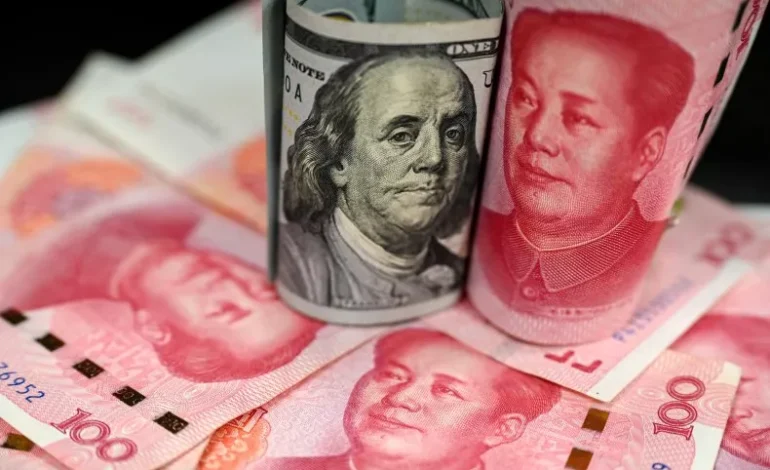The Chinese yuan weakened to its lowest level in 17 years against the US dollar on Thursday after President Donald Trump excluded China from his 90-day pause on reciprocal tariffs.
In addition, Trump raised the tariff on Chinese imports to 125 percent, escalating tensions between the two economic giants.
The US dollar strengthened sharply following Trump’s announcement, which helped to boost global stock markets after recent losses due to fears of a trade war that could potentially push economies into a recession. Trump explained that China was excluded from the tariff freeze due to “the lack of respect that China has shown to the World’s Markets,” further emphasizing that the tariff hike on Chinese goods would take effect immediately.
The decision by Trump to intensify tariffs on China, while pausing tariffs on other trade partners, came after weeks of rising tension between the US and China. The tariff increase and exclusion of China from the pause caused an immediate reaction in the markets, leading to a sharp decline in the yuan.
This weaker yuan could benefit China’s export sector by making its goods more competitive in international markets, outside of the United States. However, the depreciating currency also raises concerns for China’s economy, which relies heavily on imports. A weaker yuan could lead to higher costs for imported goods, putting additional pressure on Chinese consumers and businesses.
The Chinese government has already retaliated by imposing restrictions on US companies operating in China and filing a challenge to US tariffs at the World Trade Organization. Officials in China warned that they would take further countermeasures if the US continued to escalate the trade conflict.
This latest development adds to the growing uncertainty surrounding the global economy. While US stock markets saw a temporary rebound following the announcement of the tariff pause, the overall volatility continues. Oil prices, for instance, fluctuated dramatically as markets reacted to the potential implications of the ongoing trade conflict.
As the trade war between the US and China continues to unfold, analysts have raised concerns about the broader economic consequences. Some experts suggest that Trump’s strategy of using tariffs to pressure China and other countries may succeed in the short term, but risks fragmenting the global economy into opposing blocs. Others warn that the continued escalation of tensions could lead to even more serious consequences, such as China taking more aggressive actions.
Newsweek, the Financial Times, and Bloomberg contributed to this report.










The latest news in your social feeds
Subscribe to our social media platforms to stay tuned